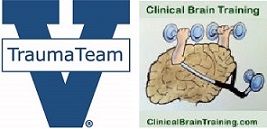Since I’m working with EMS again, I’ve had to go back and get ACLS. The online Heartcode ACLS product from AHA is a good example of the things I’ve been writing about.
As I’ve told people, I dont think we learn anything without error. We can read things, and think we know them, but until we are forced to bring that information up from memory and apply it correctly, we havent “learned” it. The case scenarios in the online ACLS are a great example of how that works. If you’re bright, and have a good memory, and the ability to pick up things when you read or hear about them, you might be able to pass the scenarios the first time, but chances are you will have guessed on a few things. Guessing and getting the answer right is often a bad thing. This is because you havent learned it, and if that question comes up again, especially under stress, there is probably only a 50-50 chance you will get the correct action.
The great thing about the scenarios is that you go through it, see what you got wrong (which sets it up for learning) and then can run through a similar scenario again (with some changes generated by the program) and face that decision again. Chances are you will say “ooh, I got that wrong last time, I need to do this” and you will (meaning you learned it). Go through similar cases a few times a month, or utilize that knowledge with real patients, and you will have that knowledge for a long time.
When you do brain training scenarios you need to do the same thing. If someone doesnt remember their ABC’s, go back through that part of the evaluation, make sure they understand what they did wrong, and then immediately run them through a similar (not identical) scenario that requires them to do it correctly. If they do better, do one more scenario and move on.
I am going to put a manuscript up that decribes how to do the clinical brain training cases in the next week. Look out for it.
JY



 Subscribe in iTunes
Subscribe in iTunes